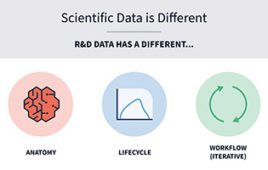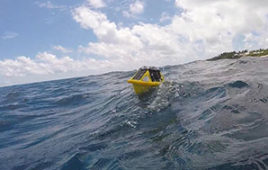New EU-funded projects to combat tuberculosis
It’s March 24th again and the World Tuberculosis Day reminds us that for almost 50 years no new drugs have been developed against this terrible disease, which is currently killing nearly two million people worldwide each year. It’s a global problem because the emergence of drug resistant strains of this infectious disease – normally associated with poverty – is a growing problem even in high-income economies. Research on tuberculosis is, therefore, a priority area for the EU. Since the beginning of the 7th Framework Programme for Research in 2007, €51 million has been invested in over 13 transnational collaborative projects. Most of these projects have addressed the complex interaction between the causative agent, Mycobacterium tuberculosis, and the human host, or are developing new diagnostic tools and new vaccine candidates to fight tuberculosis. Recently three more projects have started, including one funded by the European and Developing Countries Clinical Trials Partnership (EDCTP). They will also focus on developing new drugs which could make the shorter treatment of tuberculosis a reality.
Generating new candidate drugs
New drugs for an old disease require novel ideas. Under the Seventh Framework Programme for research, the European Commission provides support for the most innovative approaches to combat the disease effectively. Two new research projects funded by the European Union started in 2011:
– MM4TB, “More Medicines for Tuberculosis”, is a highly innovative project using genetic and chemical approaches to discover new ways of treating the disease and identify new chemicals that would serve as candidates for novel drugs
– ORCHID, “Open Collaborative Model for Tuberculosis Lead Optimisation”, focuses on testing new drugs against drug-sensitive and –resistant tuberculosis, with a number of promising molecules as a starting point in the development of new medicines
Together, these projects will make a significant effort towards shortening the treatment regimen of tuberculosis. They combine the knowledge of the best academic research groups in Europe with industrial expertise from SMEs and big pharmaceutical companies.
Testing candidate drugs: a promising clinical trial
EDCTP, which the European Commission supports, is funding the Pan-African Consortium for Evaluation of Anti-tuberculosis Antibiotics (PanACEA), an African-European research collaboration aiming to shorten and simplify treatment of tuberculosis. This consortium is conducting regulatory standard Phase II and III clinical trials for anti-tuberculosis drugs regimens containing SQ109, Moxifloxacin and high dose Rifamycin. The molecule SQ109 is one of the most promising tuberculosis drugs to enter advanced clinical testing in recent years. It could simplify and shorten the duration of tuberculosis treatment and decrease disease recurrence.
Background
The European Union is supporting collaborative research on tuberculosis through the Seventh Framework Programme for Research (FP7, 2007-2013). It covers the full spectrum of research, from basic molecular research through preclinical tests and proof-of-principle. It also contributes to the European & Developing Countries Clinical Trials Partnership (EDCTP).
EDCTP was created in 2003 by the European Union as a response to the global health crisis caused by the three main poverty-related diseases of HIV/AIDS, malaria and tuberculosis. It aims to accelerate the development of new or improved drugs, vaccines and microbicides with a focus on phase II and III clinical trials in sub-Saharan Africa. It unites 16 European countries with sub-Saharan African countries. So far, the EDCTP has earmarked support to 18 tuberculosis trials with a total budget of € 99.41 million, of which 38.75 million was contributed by the European Commission.




